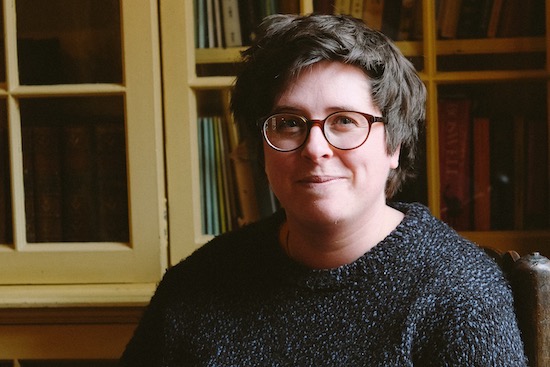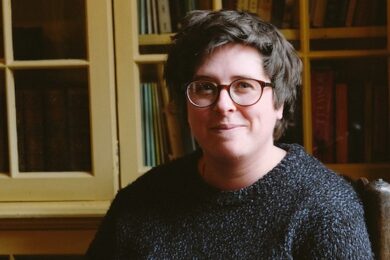Photo credit: Sophie Davidson
“I tried to read the dictionary – there wasn’t much plot, but at least it kept explaining as it went along.” The joke may be old but there is, perhaps, a sub-genre of contemporary writing that could be called ‘dictionary fiction.’ The field would include Milorad Pavic’s Dictionary of the Khazars, Laurence Norfolk’s Lemprière’s Dictionary, and Pip Williams’ The Dictionary of Lost Words. The logic of the form is easily explicable: in times of deep uncertainty, the urge arises to classify, explain, pin down. Complexities are clarified, order is established, chaos is averted. Such fiction is a universal ‘to do’ list for anxious souls, concretising the worryingly nebulous.
Unfortunately, the best fiction has a habit of posing more questions than it can answer, of experiencing problems rather than solving them. And – even in the parlous times we are living through – there is nothing more uncertain or baffling than the human heart.
This is why other entries in the catalogue of dictionary fiction might include David Levithan’s The Lover’s Dictionary, Xiaolu Guo’s A Concise Chinese-English Dictionary for Lovers, or – at a stretch – Roland Barthes’ A Lover’s Discourse (a ‘discourse’ not a ‘dictionary,’ but a series of alphabetically arranged definitions, nevertheless.) And it is what makes Eley Williams’ The Liar’s Dictionary all the more essential.
The Liar’s Dictionary is Williams’ first novel, following the justly-acclaimed 2017 collection of short stories Attrib., and while fans of that book certainly won’t be disappointed with this one, they will find something rather different here.
The Liar’s Dictionary begins in a familiar way with a preface which talks about what dictionaries are, can be, and could do. It addresses ‘you’ directly, it draws attention to itself as a physical object, it puns and plays and invites you to wonder. The preface draws on Italo Calvino and Ali Smith, and adds wonderfully to their legacy.
After that, we step into the first of twenty-six alphabetically-sequenced chapters to find Mallory, an office-bound min-waged factotum (not) busy digitizing Swansby’s, a lesser-known and notoriously incomplete encyclopaedic dictionary. Mallory narrates every other chapter, alternating with the hapless yet endearing Peter Winceworth, a little-noticed researcher and scribe at work in the same office on the original edition of the dictionary, more than a century earlier.
Mallory, somewhat adrift, stunted in a pointless job and plagued by threatening phone calls feels very much a contemporary, while Winceworth at first seems one of Robert Walser or Franz Kafka’s desk-bound drudges, only soon to become something more akin to a character from a Saki story (the Edwardian satirist being one of Williams’ professed favourite writers) as he becomes entangled with the office bro, Terence Frasham, and his enigmatic (apparent) fiancée Sophia Slivkovna.
With its historical and contemporary settings, rounded relatable characters, and a plot to which one could even give spoilers (I shan’t, though suffice to say that there are explosions, debauched soirées, and even a train crash), The Liar’s Dictionary is recognisably a Proper Novel. (Those who appreciated Attrib.’s rather more tangential approach to the world will be pleased to know that there is a scene in which an emergency tracheotomy is performed on a pelican, however.) It is compulsively readable, welcoming, kind, and generous, and never substitutes sentiment for depth, wit for complexity, or irony for thought.
‘Mountweazels,’ fake words planted in dictionaries to snare copyright cheats and plagiarists, the lexical equivalents of trap streets and paper towns on maps, feature significantly in The Liar’s Dictionary. The modern dictionary that Mallory is working on is revealed to be filled with them, and we find that many have been placed there by her predecessor Winceworth, but not for the customary reasons. While dictionaries and their entries may seem to be a mere McGuffin or handy structuring device, they actually become the theme of the book itself. How can things be defined, this novel asks, and held, or – indeed, even – should they be?
“To name a thing is to know a thing,” thinks Winceworth, though Mallory later acknowledges “I didn’t realise that a dictionary might be like reading a map or looking in a mirror.” One definition can lead to another, and you may rapidly find yourself lost, or not quite where you thought you were. Definitions aren’t as handy as they may have seemed; meaning is complex, and often illusory. Towards the end of the book, it takes the book’s ambiguous hero to point out that “Names after all … should not matter so much.”
Even if they don’t, and definitions reveal themselves as slippery things, dictionaries are an attempt to hold, and a way of choosing to do so. The tricky courtship of word and world, and how a book might hold a world, is essentially the theme of all dictionary fiction. The Liar’s Dictionary, an invaluable addition to that odd canon, ends up – I think – being all about one word, one that James Joyce (an encyclopaediac himself) called “the word known to all,” the word love.



